COMP 430 - Desktop Support and Troubleshooting 1 (CompTIA A+ 220-1001 Core 1)
This international, vendor-neutral certification proves competence in areas such as installation, preventative maintenance, networking, security and troubleshooting. CompTIA A+ certified technicians also have excellent customer service and communication skills to work with clients. Students will obtain the skills and knowledge necessary to install, build, upgrade, repair, configure, troubleshoot, and perform preventative maintenance on personal computer hardware and operating systems. The Essentials Exam validates the basic skills needed by any entry-level service technician regardless of job environment.
COMP 421 Introduction to Networking
This course is designed to equip students with fundamental concepts and practical skills in computer networking. Through a blend of theory and hands-on exercises, the course covers topics such as network architecture, protocols, data transmission, and network security. Students gain a solid understanding of networking models, while exploring various network topologies and devices. Emphasis is placed on configuring and troubleshooting networks, as well as understanding the implications of network design decisions. By the end of the course, students will have a grasp of basic networking principles, setting a strong foundation for further studies.
COMP 460 - Linux Fundamentals
This course is an introduction to fundamental end-user and administrative tools in Red Hat Enterprise Linux, designed for students with little or no command-line Linux or UNIX experience.
COMP 431 - Desktop Support and Troubleshooting 2 (CompTIA A+ 220-1001 Core 2)
This course is designed for students intending to work in a mobile or corporate technical environment with a high level of face-to-face client interaction. Potential job roles include IT administrator, PC technician, and Field Service Technician, as well as non-technical jobs that require understanding of computer repair issues. Students who pass both CompTIA A+ Essentials and exam 220-602 will be CompTIA A+ certified with the IT Technician designation.
COMP 440 Implementing and Administering Cisco Solutions (CCNA) 1
This course focuses on providing the skills and knowledge necessary to install, operate, and troubleshoot a small branch office Enterprise network, including configuring a switch, a router, and connecting to a WAN and implementing network security. A Student should be able to complete configuration and implementation of a small branch office network under supervision.
COMP 510 Windows Desktop Client Operating System
In this course students gain a fundamental understanding of the the latest Microsoft Windows client operating systems. Through lectures and labs, students will learn how to deploy, configure, secure, manage, and monitor devices and client applications in an enterprise environment.
COMP 461 - Linux System Administrator
This is a course for users of Linux (or UNIX) who want to begin building further skills in systems administration on Red Hat Enterprise Linux 5, to a level where they can attach and configure a workstation on an existing network.
COMP 450 MS Server Fundamentals
This course provides students with the knowledge and skills that are required to manage accounts and resources, maintain server resources, monitor server performance, and safeguard data in a Microsoft Windows Server environment.
COMP 530 Cybersecurity Essentials
This course provides students with the fundamental concepts of cybersecurity. Through lectures and labs, students gain an understanding of potential network security risks and how to anticipate and respond to threats. Students also learn about the importance of cybersecurity governance, risk management and compliance.
COMP 470 Cloud Computing I
This is a course in the essentials of cloud computing. Students will gain an understanding of fundamental concepts such as cloud deployment models, service models and key providers. Students will also gain experience with popular cloud platforms and explore the management of cloud resources including the deployment of Virtual Machines, storage implementation and the configuration of virtual networks.
COMP 471 Cloud Computing II
This course introduces foundational knowledge of cloud concepts in general and Microsoft Azure in particular. This is a common starting point in a journey towards a career in Azure. In addition, it skills students subject matter expertise in implementing, managing, and monitoring an organization’s Microsoft Azure environment, including virtual networks, storage, compute, identity, security, and governance.
COMP 441 Implementing and Administering Cisco Solutions (CCNA) 2
COMP 441 focuses on providing the skills and knowledge necessary to install, operate, and troubleshoot a small to medium-size branch office Enterprise network, including configuring several switches and routers, connecting to a WAN and implementing network security. The course covers topics on VLSM and IPv6 addressing; extending switched networks with VLANs; configuring, verifying and troubleshooting VLANs; the VTP, RSTP, OSPF and EIGRP protocols; determining IP routes; managing IP traffic with access lists; NAT and DHCP; establishing point-to- point connections; and establishing Frame Relay connections.
COMP 531 Advanced Network Security
This course builds upon the fundamental concepts of cybersecurity learned in COMP 530. Students gain more a more in-depth understanding of network security vulnerability assessment and penetration testing, as well as secure network architecture design. Students will learn effective countermeasures to established attack tools and techniques, and consider emerging trends and threats.
COMM 140 - Communications
This introductory communications course emphasizes the development of reading, writing, listening and speaking business communication skills at a college level. Students write for various purposes and audiences and deliver short presentations to small groups. Students research, analyze, summarize and document information. Students self and peer evaluate written documents and oral presentations. Through reading, media response and discussion exercises, students improve their communication skills. Communicating in diverse teams and across cultures is emphasized.
PPD 100 - Success in the Classroom
This is a first semester course that provides students with the tools they need for academic success. The course offers skills to help students with the transition to post-secondary education, to help them learn how to be a successful student and to make the most of their learning experience.
PPD 150 - Success in the Workplace
This course focuses on preparing students for the Canadian workplace, either in their future career or the work-integrated learning component of their Canadian College program. Students will examine their own career goals as well as topics such as safety, time management, and critical thinking, in order to help them transition into and succeed within a Canadian work environment.
PPD 200 - Business Computers 1
This course is the first part of an introduction to the computer skills required in business today. It provides the student with an introduction to computer file management and Microsoft Word.
PPD 250 - Business Computers 2
This course will introduce and further develop Microsoft Excel skills that the student will need use in subsequent semesters and in the business world. Upon completion of the course, students will be able to prepare tables and graphs, use input fields, understand and be able to use Microsoft Excel insert functions and specialized functions. These functions include goal seeking, solver and data analysis.
PPD 300 - Managing Stress
This course explores practical strategies for managing stress in academic, personal, and professional life. Topics include mindfulness, time management, relaxation techniques, and emotional regulation. Students will develop skills to recognize stress triggers, build resilience, and enhance well-being, fostering a balanced approach to handling everyday pressures and challenges.
PPD 350 - Managing Personal Finances
This course provides foundational knowledge and practical skills for managing personal finances. Topics include budgeting, saving, investing, debt management, and financial planning. Students will learn how to make informed financial decisions, set financial goals, and build long-term wealth, preparing them for financial independence and stability.
PPD 400 - Canadian Culture & Diversity
This course explores the rich and diverse cultural landscape of Canada, examining its history, diversity and societal values. Topics include Indigenous cultures, French and English heritage, multiculturalism, and the role of culture in shaping national identity. Students will analyze how cultural expressions reflect and influence Canadian society.
PPD 450 - Career Development
This course provides students with tools and strategies necessary for effective career development. Topics include self-assessment, career exploration, resume and cover letter writing, job search strategies, and interview techniques. Students will learn to identify their strengths and interests, research potential career paths, and create actionable plans for professional growth. By the end of the course, students will have a clear roadmap for launching and advancing their careers, equipped with the confidence and skills to succeed in a competitive job market.
PROJ 405 - PM Fundamentals
This course introduces students to the framework information of project management. The terminology, processes, and knowledge areas of project management are defined to establish a basis upon which participants can develop and grow their project management knowledge, skills and attitudes.
PROJ 420 - PM Risk Management
Project risk management is a critical aspect of successful project management. The process of risk management requires a proactive approach to plan, monitor and control the risks and achieve the objectives of the project successfully. This course provides insight and tools to improve project risk management and increase the probability of project success.
PROJ 415 - PM Leadership
Project management involves technical skills like scheduling, budgeting, scope definition and quality management, but more importantly, effective management requires the project manager to possess behavioural skills to influence others. It addresses such diverse, but equally important, roles of project leader as visionary, strategic manager and ethical leader. It is a hands-on guide detailing the specific steps you will need to follow in creating a project vision, reaching all project stakeholders and selling that vision.
PROJ 410 - PM Budgets & Scheduling
The purpose of this course is to provide guidance on resource cost estimating, budget baselining, and displaying budget information using various tools. Schedule management involves planning and controlling the resources and timelines of a project. Planning the schedule of the project includes estimating and allocating the resources, establishing the order of activities and interdependencies, then applying the activities to a calendar and leveling the resource allocations. This course is designed to help participants plan and manage the schedule of a project using good project management practices.
COMM 210 - Intercultural Communication
This course prepares students to meet the challenges of intercultural business communication. Success in international business requires understanding and sensitivity in order to navigate the various differences one will encounter in a multi-cultural setting. From contrasting values and etiquette, to differences in language and non-verbal communication, students will develop the awareness and skills to transcend such differences within a multicultural environment, both international and domestic. Through assignments, readings and in-class discussion, students will gain the practical knowledge and skills for a variety of communication-based tasks, from cross-cultural negotiation to effective business correspondence.
COMP 110 - Digital Graphic Design I
This comprehensive course is designed to take students from the very beginning of their Photoshop journey and gradually build their skills in this powerful design software. Participants will get familiar with the software interface and they will learn Photoshop's tools, panels, and functions, ultimately gaining the skills required to create projects from scratch.
COMP 210 - Digital Graphic Design II
This course is tailored for students who have completed Digital Graphic Design I and wish to dive deeper into the advanced capabilities of Adobe Photoshop, particularly in the realm of digital platform content creation. By the end of the course, students will be adept at creating compelling visuals for social media, email marketing, website graphics, and display ads. They will also be introduced to the AI-enhanced capabilities of Photoshop for auto-generative content creation.
COMP 270 - Introduction to Front-End Web Development
This course is designed to equip students with the essential tools and techniques for crafting websites tailored to diverse business model needs. The primary goal is to nurture students' abilities to develop interactive, captivating, and conversion-centered online platforms.
COMP 150 - Business Computers 1
In this hands-on introductory course, students gain the fundamental computer application skills required in today’s business environment. Students who successfully complete the course will be able to create, edit and manage professional documents, presentations and spreadsheets.
COMP 151 - Business Computers 2
This course will further develop Microsoft Excel skills that the student will need use in subsequent semesters and in the business world. Upon completion of the course, students will be able to prepare tables and graphs, use input fields, understand and be able to use Microsoft Excel insert functions and specialized functions. These functions include goal seeking, solver and data analysis.









